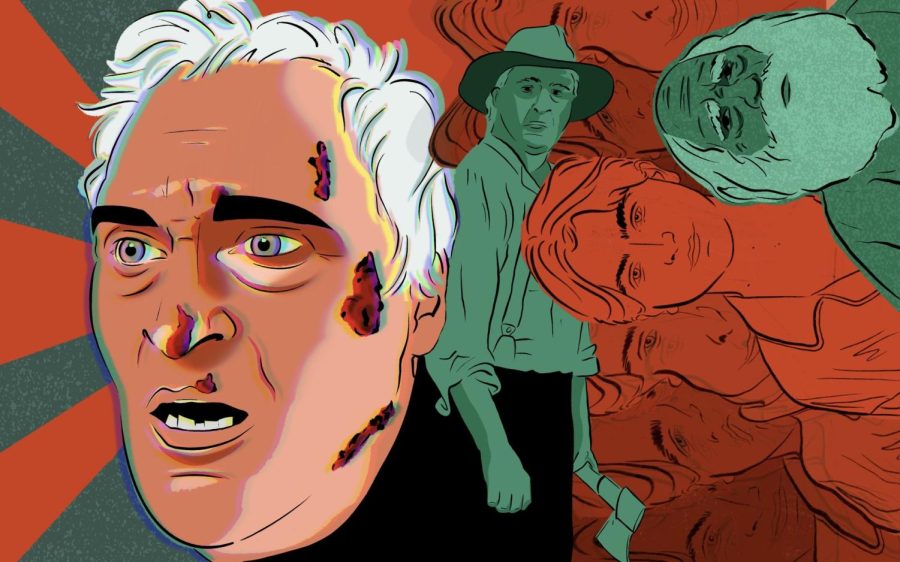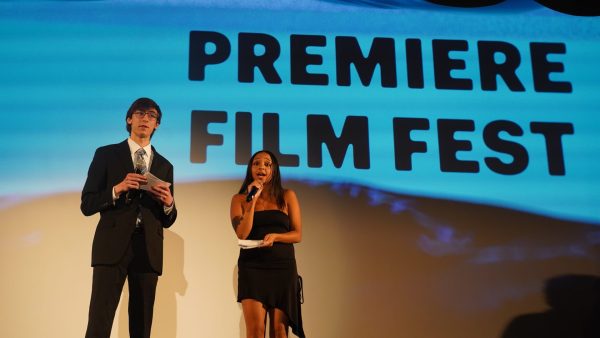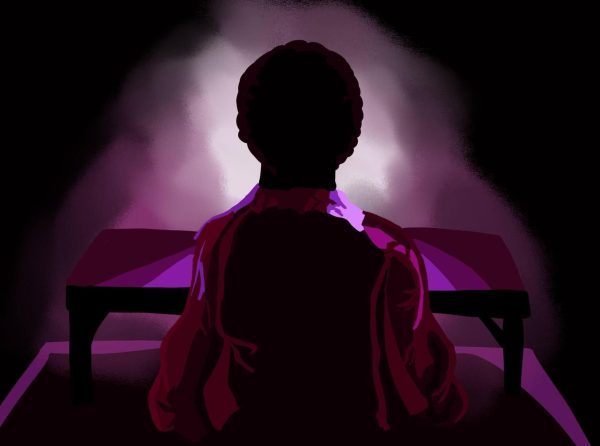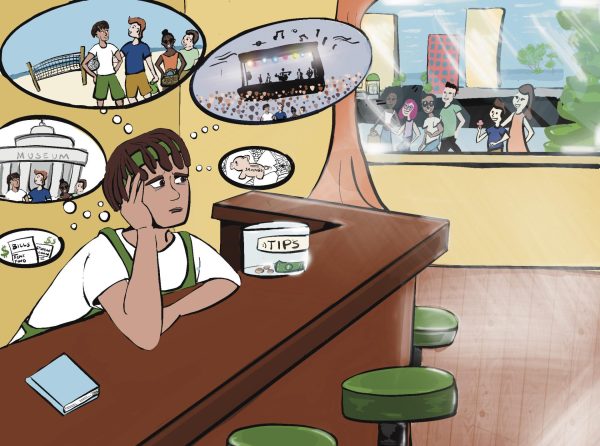‘Beau is Afraid’ is a miserable, freudian Odyssey
In the world of modern horror, few names have shot as quickly and undeniably to the top of the genre as Ari Aster. The writer-director behind unforgettable, twisted psychological horror films like “Hereditary” and “Midsommar,” any project bearing Aster’s name is sure to leave the audience with a visceral reaction. His latest film, “Beau Is Afraid” is no exception, though perhaps not in the way I would have liked. Though undeniably ambitious and original, “Beau is Afraid” is Aster’s most incoherent, self-indulgent film yet: a tiresome, three-hour slog that fumbles in both execution and ending.
Starring Joaquin Phoenix, “Beau Is Afraid” follows the eponymous Beau, an anxiety-ridden 40-something-year-old living in a nightmarishly violent neighborhood and bearing a boatload of mommy issues. When a series of unfortunate events cause him to miss his flight home to visit his aging mother, Beau embarks on a surreal, nightmarish quest to get to his mom’s house before it is too late.
Admittedly, that is an extreme oversimplification of the film’s winding, arduous marathon of a narrative: Clocking in with a runtime a minute shy of three hours, this already unpleasant film further shrugs any desire for re-watchability with its gargantuan runtime. You feel every last minute of Beau’s hellish journey — and perhaps that is the intention — but where previous Aster films caused discomfort in a way that felt gratifying through the narrative, “Beau is Afraid” bears no such thematic coherence.
When it is down to brass tacks, this is probably Aster’s least scary film yet. Though it does offer a jumpscare or a bout of exceedingly brutal violence every now and again, the film most frequently operates as a psychological thriller. In this element, it is undeniably successful, thanks to Aster’s eye for visual language and the deft hand of editor Lucian Johnston. The more experimental and bizarre “Beau is Afraid” gets, the more engaging it becomes, and the film is visually dazzling at its most outlandish moments.
Production designer Fiona Crombie and cinematographer Pawel Pogorzelski are particularly due credit for the specific visual language of “Beau is Afraid.” From animated sequences to flashbacks swathed in paradoxically warm and radiant lighting, the sheer variety of spectacle found in “Beau is Afraid” makes the film’s sprawling scope worth it at certain points.
Unfortunately, though, these moments of artistic and aesthetic brilliance do not quite balance out the narrative, tonal and thematic flaws, of which there are many. It is a cruel film, which views people as human meat puppets to invoke terror upon or suffer as an indirect result of Beau’s hapless wandering. Virtually everyone he meets ends up dead or with their lives ruined: Amy Ryan and Nathan Lane’s kindly couple Grace and Roger are a prime example.
While Ryan and Lane turn in strong performances, their characters are both inconsequential in the grand scheme of the plot and bizarrely apathetic as a viewer. We are in Beau’s shoes, sort of. We at least see what he sees, which means we are inherently suspicious of anybody who shows him kindness or welcome. In that respect, it is hard to connect with any character outside of Beau himself, and spending three hours in Beau’s head is not an experience I would recommend others subject themselves to.
Yes, Joaquin Phoenix gives another tour-de-force performance to slot in his portfolio as one of the industry’s most extreme method actors, and yes, Patti LuPone is glorious in the third act. However, it is not so much a movie as it is a walk through Aster’s most basest, most Freudian, most Faustian thoughts, and the bare-bones narrative only makes the extended sequences of horror and trauma feel all more the vicious.
“Beau is Afraid” is a personal, well-crafted story to be sure, but it seems more interested in acting as an expression of the creator’s traumas as opposed to a work or experience made for mass consumption. For some, this deep, raw look into a horror virtuoso’s mind may be revelatory and revealing, but I cannot find it in myself to encourage audiences in seeking it out.












